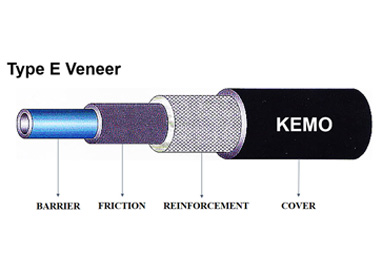Understanding Brake Line Pipe Function and Importance in Vehicle Safety Systems
Desemba . 24, 2024 06:00 Back to list
Understanding Brake Line Pipe Function and Importance in Vehicle Safety Systems
Understanding Brake Line Pipes Importance and Maintenance
Brake line pipes are a crucial component of every vehicle's braking system. They are responsible for transporting brake fluid from the master cylinder to the brake calipers or wheel cylinders. This fluid transfer is essential for activating the brakes, making it possible for drivers to slow down or stop safely. Understanding the significance of brake line pipes, their construction, and how to maintain them can help ensure the safety and reliability of your vehicle.
Construction of Brake Line Pipes
Brake line pipes are typically made from durable materials such as copper, aluminum, or stainless steel. Each material has its advantages and is chosen based on factors like cost, weight, and resistance to corrosion. Copper brake lines, for example, are easier to bend and manipulate but can corrode over time. Stainless steel, on the other hand, is highly resistant to rust and offers excellent durability, although it can be more difficult to work with due to its rigidity.
In terms of design, brake line pipes are usually cylindrical and come in various diameters. The sizing is critical because it affects the pressure at which the brake fluid can be delivered. Standard dimensions are determined by industry standards, ensuring compatibility with various vehicles.
Importance of Brake Line Pipes
The brake line system works under high pressure. When the driver presses the brake pedal, this action generates pressure in the master cylinder, sending brake fluid through the lines and applying force to the brakes. Any failure in the brake line pipes, whether from corrosion, damage, or improper installation, can lead to brake failure, resulting in potentially catastrophic consequences.
Moreover, brake lines are subjected to extreme conditions, including fluctuations in temperature, exposure to moisture, and road debris. This is why maintaining the integrity of these pipes is crucial for road safety. Neglecting brake line maintenance can lead to leaks, reduced braking efficiency, and ultimately, brake failure.
Maintenance of Brake Line Pipes
brake line pipe

Regular maintenance and inspection of brake line pipes are essential for vehicle safety. Here are some key practices for maintaining brake line integrity
1. Regular Inspections Periodically check the brake lines for signs of wear, damage, or corrosion. Look out for any fluid leaks, as this is a clear indication of a problem with the line.
2. Flushing the Brake Fluid Brake fluid can absorb moisture over time, which can lead to corrosion within the brake line. It is recommended to flush the brake fluid and replace it according to the vehicle manufacturer’s recommendations, usually every two years.
3. Rust Prevention If you live in an area that uses salt on the roads during winter, your brake lines are at a higher risk for corrosion. Applying a protective coating or using brake lines made from rust-resistant materials can help mitigate this risk.
4. Professional Servicing If you notice any signs of damage or if the brake performance seems off, it’s crucial to consult a professional mechanic. They can perform a thorough inspection, testing both the brake lines and the entire braking system.
5. Proper Installation If you are replacing or installing new brake line pipes, ensure that they are properly routed and secured. Avoid sharp bends and ensure all connections are tight to prevent leaks.
Conclusion
Brake line pipes play an irreplaceable role in vehicle safety, directly influencing the effectiveness of the braking system. Understanding their composition, importance, and the necessary maintenance practices can help drivers ensure their vehicle’s reliability. Regular inspections, timely fluid changes, and professional assistance when required will keep the braking system functioning optimally. As a driver, being proactive about brake line maintenance can significantly improve your safety and the safety of others on the road.
Latest news
-
Durable Automotive Fuel Line: Car, Diesel & E85 Hoses
NewsAug.27,2025
-
Automotive Fuel Line & Hose Solutions | E85 & Diesel Ready
NewsAug.26,2025
-
Reliable Automotive Fuel Line | E85 & Diesel Compatible
NewsAug.25,2025
-
Durable Car Heater Hose | Quality Automotive Preheater Pipes
NewsAug.24,2025
-
Durable Air Brake Hose & Air Lines for Trucks | Safety Ensured
NewsAug.23,2025
-
Air Conditioning Charging Hose: Durable AC Recharge Kits
NewsAug.22,2025
